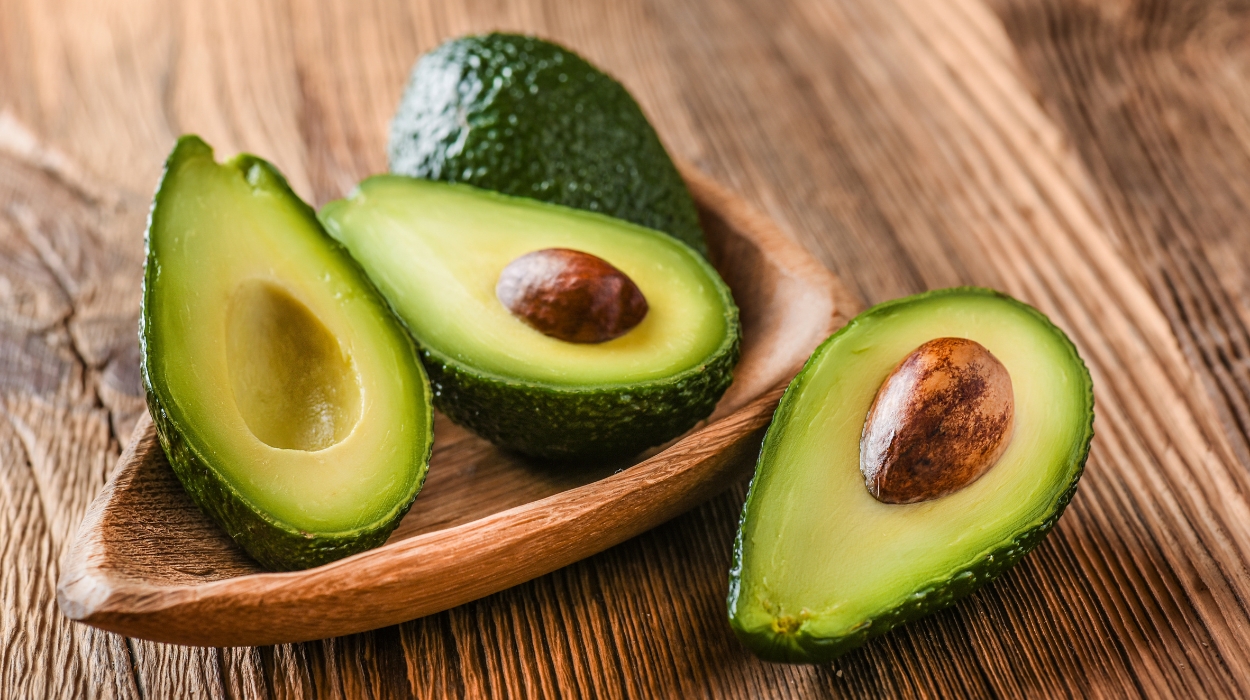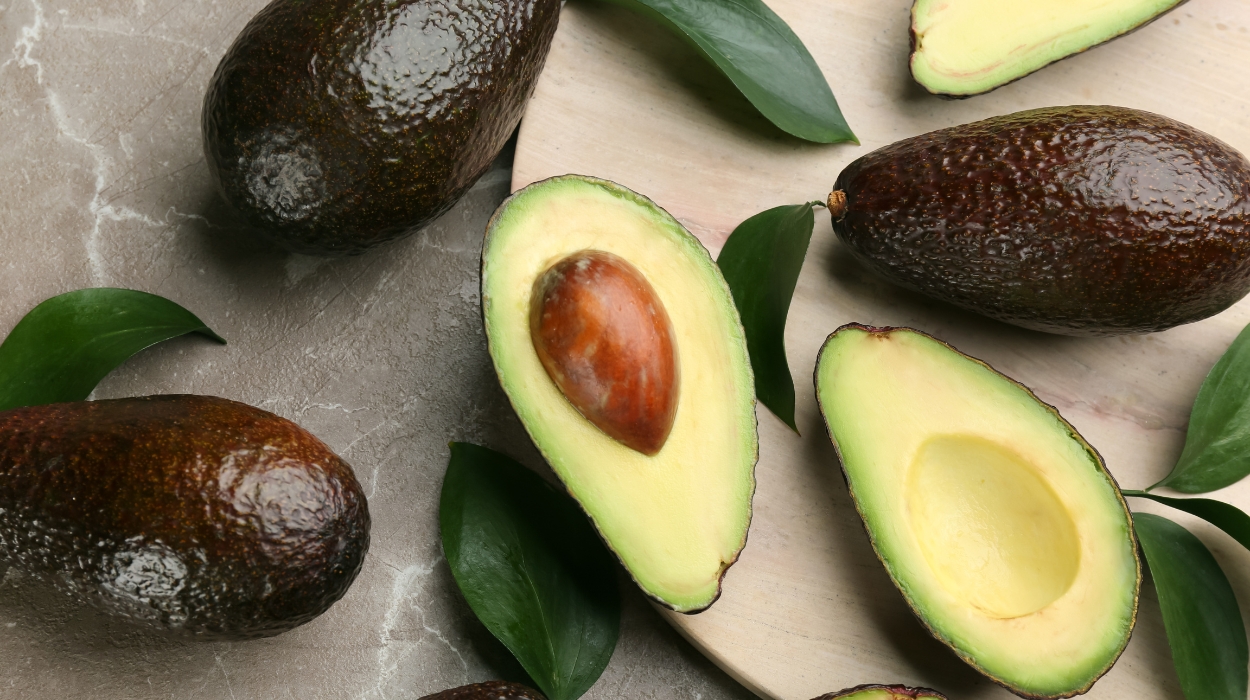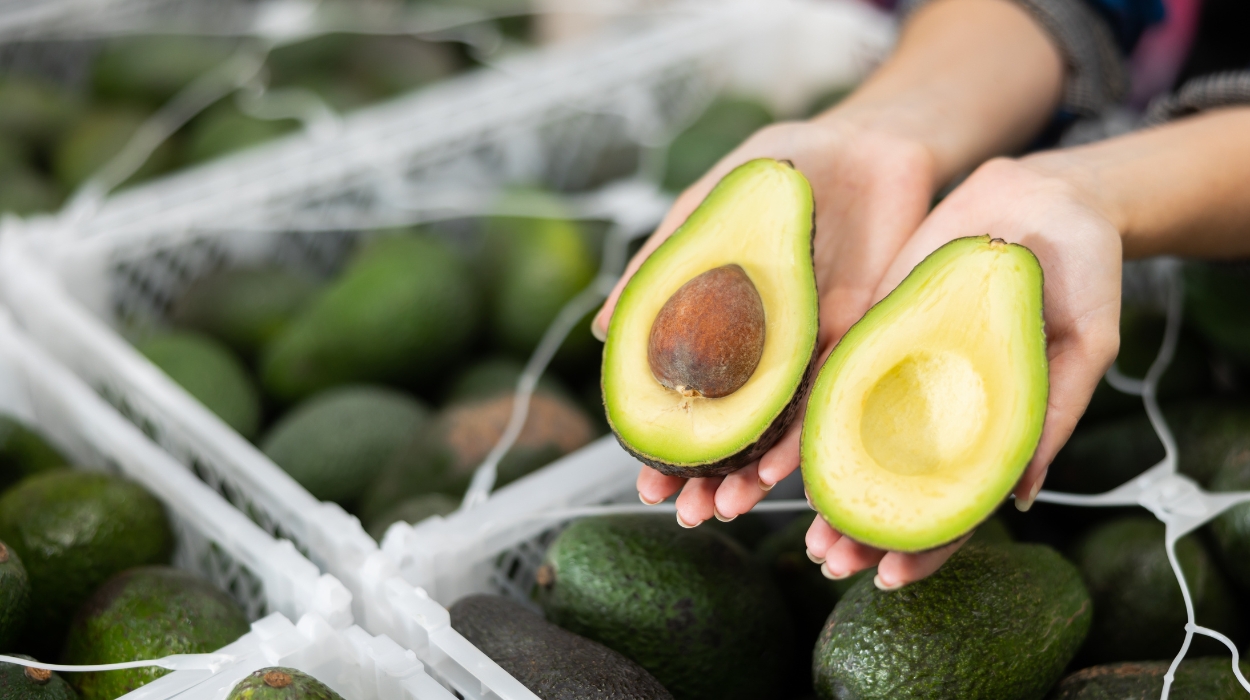 Expert's opinion
Expert's opinion
Expert's opinion
The article is a subjective view on this topic written by writers specializing in medical writing.
It may reflect on a personal journey surrounding struggles with an illness or medical condition, involve product comparisons, diet considerations, or other health-related opinions.
Although the view is entirely that of the writer, it is based on academic experiences and scientific research they have conducted; it is fact-checked by a team of degreed medical experts, and validated by sources attached to the article.
The numbers in parenthesis (1,2,3) will take you to clickable links to related scientific papers.
Is Avocado Good For Weight Loss? Healthy Ways To Eat Avocado 2024

You’ve heard that avocados are healthy — but also that they’re full of fat and calories. So, are avocados good for weight loss?
Avocados have gained a reputation as a superfood in recent years thanks to their health benefits and delicious taste. These low-sugar fruits are packed with monounsaturated fats, which have been proven to lower cholesterol, help fight off hunger, and even reduce stomach fat,[1] making them a potential ally in your weight loss journey.
Adding avocados to your daily diet can contribute to a well-rounded weight loss plan. Still, it’s essential to remember that they’re relatively high in calories compared to other fruits. The key to enjoying the benefits of avocados while staying on track with your weight loss goals lies in moderation and creative ways to include them in your meals.
With a mindful approach and delicious recipes, you can enjoy the goodness of eating avocados regularly to support your weight loss goals.
Are Avocados Good For Weight Loss?
Avocados can be a great addition to your weight loss journey as they contain healthy fats, vitamins, and minerals that support overall well-being. Additionally, these healthy fats can keep you full for longer, aiding in weight management. However, their relatively high-calorie content means that portion control is advised.
How Is Avocado Good For Weight Loss?
Monounsaturated Fat

Avocados have a fantastic monounsaturated fat content, a type of healthy fat that can help you maintain a healthy weight. Monounsaturated fats are heart-healthy and can help lower bad cholesterol levels, making them a great addition to your healthy diet.
Incorporating good fats like those found in avocados can help you feel more satisfied and full, leading to less overeating and better portion control. When paired with a balanced diet, a high-quality source of fat like avocados can be a crucial part of your weight loss journey.
Satiety
One of the key aspects of losing weight is finding foods that can help you feel full without consuming excessive calories. Avocado can play a role in this, as its high-fat content and dietary fiber contribute to feelings of satiety.[2] According to a study published in the Nutrition Journal,[3] participants who consumed half an avocado with their lunch reported a 40% decrease in their appetite for hours afterward.
Including avocados in your meals will not only help you feel more satisfied, but the fiber in avocados also aids digestion and supports a healthy gastrointestinal system.
Metabolic Syndrome
Metabolic syndrome comprises a group of conditions, such as high blood pressure, high blood sugar, and obesity, that can increase your risk of heart disease and diabetes. One of the studies[4] funded by the Avocado Board suggested that avocados may help manage risk factors that can lead to metabolic syndrome.
The healthy fats and fiber as well as the abundant nutrients found in avocados make them an excellent food for managing your blood sugar and supporting overall metabolic health. Adding avocados to your diet can contribute to your body’s ability to prevent and manage the conditions that contribute to metabolic syndrome.
Abdominal Fat
Carrying extra weight around your abdomen can lead to various health issues. Research[1] has shown that a diet rich in monounsaturated fats, like those found in avocados, may help reduce abdominal fat. When incorporated into a healthy, balanced diet, consuming avocados can assist you in stubborn belly fat loss and lower body weight maintenance.
Remember, the key to a successful weight loss journey is incorporating various nutrient-dense foods into your meal plan while staying mindful of portion sizes and maintaining an active lifestyle.
Avocado Nutritional Profile
Avocados are a popular and nutritious food with many health benefits. In this section, we’ll discuss the nutritional facts of avocados and how they can contribute to your weight loss journey.
Calories
Regarding calories in avocados, they can vary depending on their size. However, for a typical medium-sized whole avocado, expect around 240 calories.[5] Remember that eating in moderation is key when incorporating avocados into your weight loss plan.
Healthy Fat
Are avocados fattening? Well, avocados are known for their high-fat content, but don’t be alarmed! Most fats found in avocados are healthy monounsaturated fats,[6] which can help improve your heart health and lower bad cholesterol levels. In a medium avocado, about 15 grams[5] of the total 22 grams of fat are monounsaturated fats. Regarding how many avocados a day you can eat, consider the portion size as the high-fat content can be calorie-dense.
Carbohydrates
You’ll be pleased to know that avocados are relatively low in carbohydrates. A medium-sized avocado contains approximately 13 grams of carbs,[5] most of which come from fiber. This promotes weight loss, as fiber helps maintain a healthy digestive system and keeps you full for longer periods.
Vitamins And Minerals
Avocados are a powerhouse of various essential vitamins and minerals. Some notable important nutrients found in avocados include:
- Potassium: Potassium plays a vital role in maintaining healthy blood pressure and supporting heart health. Avocados contain more potassium than bananas, providing around 364 mg[5] per half a medium fruit.
- Magnesium: This mineral is essential for various bodily functions such as muscle relaxation and maintaining bone health. Avocados provide about 39.4 mg[6] of magnesium in a medium-sized fruit.
- Folate: Folate contributes to the production of red blood cells and DNA synthesis, making it especially important during pregnancy. A medium avocado contains about 120 mcg[7] of folate.
Other Health Benefits Of Avocados
Apart from being a great addition to your weight loss journey, avocados offer several other benefits to health that make them nutritious for your diet.
Heart Health

Avocados can be highly beneficial for your heart health. They have a high potassium content, which helps regulate blood pressure and reduce the risk of developing heart disease. Plus, avocados are packed with heart-healthy monounsaturated fats that can help lower total cholesterol levels. These fruits are also a great source of folate, which plays a key role in maintaining a healthy heart.
Diabetes Management
If you have diabetes or are at risk of developing it, eating avocados daily can add tremendous value to the quality of your diet. Since avocados are high in fiber and low in carbohydrates, these fresh fruits help regulate blood sugar levels and improve insulin sensitivity.
Inflammation Reduction
Inflammation is a natural response to injuries, infections, or stress, but chronic inflammation can lead to various health issues. The nutrients in avocados, such as magnesium, may help reduce inflammation in the body.
Magnesium[8] is crucial for proper muscle and nerve function; a deficiency can cause inflammation. You can incorporate avocados into your diet, to give your body the essential nutrients it needs to fight inflammation and promote overall health.
How To Eat Avocado For Weight Loss?
Avocado-Based Dressing
Avocados make a great base for a delicious and healthy salad dressing. By swapping out your traditional salad dressing for an avocado-based option, you can reduce the number of unhealthy fats you consume and still benefit from the oleic acid found in avocados.
Smoothie
Adding avocado to your smoothies is another excellent way to incorporate this nutrient-dense food into your diet while managing your weight. The healthy fat content in avocados can help prevent weight gain and satisfy your hunger, making smoothies one of the best breakfast ideas for weight loss.
Nutrient-Dense Meal
Incorporating fresh avocado into your meals is a simple way to ensure you eat nutrient-dense foods that promote weight loss. For example, is avocado with egg good for weight loss? Toast, fried eggs, and avocado is a popular breakfast choice, and in moderation, it can support your weight loss goals. It provides the body with essential nutrients like fiber and healthy fats that help avocado eaters feel fuller for longer periods of time, which can prevent overeating.
Remember, while avocados can be an excellent addition to your diet for weight loss, consuming them in moderation is essential due to their caloric content. Pairing them with other wholesome ingredients, like lean proteins and vegetables, can help create a balanced and delicious eating experience for your healthy weight loss journey. Other supplementation, such as best greens powder, can also provide the nutrients needed while controlling your calories.
The Takeaway
Avocados are a perfectly nutritious and delicious fruit and part of a healthy diet. They’re full of healthy fats, vitamins, and minerals that support overall well-being. Plus, these healthy fats can keep you full for longer, meaning you might not need to eat as often. A sugary donut might leave you crashing and hungry again two hours later while an avocado, toast, and egg breakfast can keep you satisfied till lunch.
Avocados are also full of vitamin C and E — antioxidants that protect your cells from damage. They also have essential minerals like potassium, magnesium, and calcium, all supporting bone and muscle health.
To sum up, avocados are incredibly nutrient-dense and should be enjoyed regularly as part of a healthy diet.
+ 8 sources
Health Canal avoids using tertiary references. We have strict sourcing guidelines and rely on peer-reviewed studies, academic researches from medical associations and institutions. To ensure the accuracy of articles in Health Canal, you can read more about the editorial process here
- DiNicolantonio, J.J. and O’Keefe, J.H. (2022). Monounsaturated Fat vs Saturated Fat: Effects on Cardio-Metabolic Health and Obesity. Missouri medicine, [online] 119(1), pp.69–73. Available at: https://www.ncbi.nlm.nih.gov/pmc/articles/PMC9312452/.
- Zhu, L., Huang, Y., Indika Edirisinghe, Park, E. and Burton-Freeman, B. (2019). Using the Avocado to Test the Satiety Effects of a Fat-Fiber Combination in Place of Carbohydrate Energy in a Breakfast Meal in Overweight and Obese Men and Women: A Randomized Clinical Trial. Nutrients, [online] 11(5), pp.952–952. doi:https://doi.org/10.3390/nu11050952.
- Wien, M., Haddad, E., Oda, K. and Sabaté, J. (2013). A randomized 3×3 crossover study to evaluate the effect of Hass avocado intake on post-ingestive satiety, glucose and insulin levels, and subsequent energy intake in overweight adults. Nutrition Journal, [online] 12(1). doi:https://doi.org/10.1186/1475-2891-12-155.
- Jamshid Tabeshpour, Bibi Marjan Razavi and Hosseinzadeh, H. (2017). Effects of Avocado (Persea americana)on Metabolic Syndrome: A Comprehensive Systematic Review. Phytotherapy Research, [online] 31(6), pp.819–837. doi:https://doi.org/10.1002/ptr.5805.
- Usda.gov. (2023). FoodData Central. [online] Available at: https://fdc.nal.usda.gov/fdc-app.html#/food-details/1102652/nutrients.
- Usda.gov. (2023). FoodData Central. [online] Available at: https://fdc.nal.usda.gov/fdc-app.html#/food-details/171706/nutrients.
- Dreher, M.L. and Davenport, A.J. (2013). Hass Avocado Composition and Potential Health Effects. Critical Reviews in Food Science and Nutrition, [online] 53(7), pp.738–750. doi:https://doi.org/10.1080/10408398.2011.556759.
- Nih.gov. (2013). Office of Dietary Supplements – Magnesium. [online] Available at: https://ods.od.nih.gov/factsheets/Magnesium-HealthProfessional/.



